The Price of Ignorance Is Brutal: Predictions for 2025–2050
From climate collapse to economic upheaval, the next few decades won’t be kind.
“Everyone, deep in their hearts, is waiting for the end of the world to come.”
– Haruki Murakami
Murakami-san and dear reader, it seems I bring good news: the end of the world as we know it isn’t just inevitable, it’s imminent. Events are unraveling far faster than anyone anticipated. Even The Guardian is catching on, as shown in their article from December 28, 2024.
I want you to think about this question:
If you found out you only had 5 years to live, would you change anything about your life today?
Reality Check: 2024
2024 was the hottest year on record, again. Crops are failing across the globe, and food insecurity is worsening. Inflation is spiraling out of control, pushing basic goods beyond the reach of millions. Cities are running out of water, with droughts and mismanagement draining essential supplies.
Donald Trump was re-elected as US President, with backing from the richest man on the planet, Elon Musk, effectively turning the US into a kleptocracy. Meanwhile, Russia continues its bombardment of Ukraine, and sabotaging European infrastructure. Climate disasters are intensifying, economies are teetering, and the global order is crumbling. I think you get the picture.
The health of the biosphere has been in steady decline for millennia, and its collapse has been unstoppable for some time. That’s right, this is no longer something we can stop.
Why do I say that?
Key tipping points, like the thawing of permafrost, the melting of polar ice, ocean acidification, and the dieback of forests due to drought, pests, and changing climate conditions, have already been crossed.
Now think about what it would take to reverse these processes. We wouldn’t just need to stop emissions, that’s not enough. We would have to drastically reduce CO₂ concentrations in the atmosphere, sequestering billions of tons of CO₂ and other greenhouse gases. If you run the numbers, it becomes clear that achieving this on meaningful timescales is simply not possible, especially considering how quickly temperatures are rising and the warming already in the pipeline. We will have climate chaos this century and the next, it’s locked in.
On top of that, mass extinctions are in full swing, far beyond the point of return, with cascading effects dismantling food webs and collapsing ecosystems across land and sea. Reversing these trends would require not only the above impossible measures related to global warming, but also halting nearly all human activity to give nature a chance to heal.
And yet, these irreversible changes are still falsely being framed as "avoidable" by those desperate to maintain a facade of control. At best, we might slow the trajectory, but stop it? Impossible.
Institutions like the IPCC, IEA, UNFCCC, UNEP, mainstream media, politicians, and even many scientists have become masterful sellers of what can only be described as legal hopium1. They water down the truth, downplay the urgency, and keep offering promises of solutions they know are impossible.
They’ll never come out and say, “We’re totally fucked”, even when it’s painfully obvious. They just won’t. It’s not because they’re evil (well, not all of them). Some of them genuinely don’t know, and the ones that know wont’t say it. Why?
President Orlean: You cannot go around saying to people that there's 100% chance that they're going to die. You know? It's just nuts.
And what would that achieve anyway?
But even if someone did come out and tell the unvarnished truth, it would probably be dismissed as alarmism, insanity, pessimism or ignored entirely.
The truth is that a comforting vision of the future now requires defying the fundamental laws of physics, biology, and ecology. We’re on a collision course, and we’re not even trying to hit the brakes.
Most people will deny this reality. Some of you reading this right now might be among them. Please leave a comment. They’ll cling to distractions or chase any illusion of "hope”, even when it’s just a well-packaged lie.
“if everyone magically comes together, scale up lab experiments, ignore resource limits in materials and energy, and pretend ecological reality don’t exist, then we can keep going”
I would ask: what are you trying to save, and for how long? Most plans would buy us a few years if they could be implemented, but they often can't, and none of them are sustainable in the long term.
The Metacrisis – Predictions for 2025-2050
I’m going to focus on the following:
Resource exhaustion and peak power
Fossil fuels, freshwater, forests, soil, minerals, metals, and fish stocks are being consumed at rates the planet simply can’t sustain. Most of the resources that underpin our civilization are finite, and maintaining the status quo demands an ever-flowing supply of energy and materials. But we’re burning through what’s left. The easy stuff is gone. Hard limits exist. Energy and materials will start to decline. The cracks are already showing.Civilizational collapse
As energy availability declines and resources become scarcer, political and economic instability will lead to the collapse of modern civilization and our way of life. This is no surprise, civilization is essentially a long-running Ponzi scheme, surviving by exploiting nature, borrowing from the future, and pillaging its surroundings until there’s nothing left. Good riddance.Biosphere breakdown
Biodiversity loss, ecosystem collapse, climate change, and pollution from chemicals, plastics, and other waste are all accelerating. Much of the damage is already done and locked in. The best we can hope for now is to delay.
At the root of it all is hubris, anthropocentrism and overshoot, our relentless overconsumption that exceeds the planet’s capacity to sustain life and our complete disregard for nature, other animals and the biosphere.
If you’ve never heard of any of this, I suggest reading some of my previous articles first. This one and this one, because I won’t be referencing all of the scientific papers in this article.
Instead, I’ll lay out my predictions for the next 25 years, a worst-case, yet entirely possible vision of where we’re headed.
How this unfolds is impossible to predict, with many unknowns and the wildcard of human behavior in the mix.
Peak Power & Civilizational Collapse
I predict that the collapse of modern civilization will not be slow. Why? Because it depends on:
Extreme complexity and an interdependent global trade network
Very high net energy demands
Massive material flows of finite resources
A relentless growth imperative dependent on a growing population
The early stages are already here; protectionism, resource struggles, and rising instability. We can all feel it. It’s so obvious.
When a complex system like ours tips past its breaking point, collapse comes rapidly.
It’s a bit like the game Jenga, which I played with my niece and nephew the other week. In every round, there comes a point where everyone knows there are maybe 2–3 pieces left that can be moved. Then, with one move, it all comes crashing down. Modern industrial civilization is similar: one essential country or resource falters, and the whole system can unravel. We just don’t know which piece will trigger it.
We will hit peak civilizational power by 2035 or sooner2, and this will be a massive turning point. Prices will soar as everything relies on cheap, abundant energy. Much of the food we eat is grown with fertilizers derived from fossil fuels, harvested by oil-powered machines, and shipped across the globe. Medicine, machinery, and spare parts for critical infrastructure? All dependent on energy-intensive manufacturing and global supply chains that will start to falter, slowly, at first.

Aviation, shipping, petroleum extraction, agriculture, mining, trucking, and everything else will become more expensive, leading to the contraction of supply chains and the economy. Without affordable fuel, the movement of essentials like food, medicine, and raw materials will decline. Soaring fuel prices, shrinking energy supplies, and geopolitical instability will make long-distance trade nearly impossible. The suburban lifestyle, reliant on cheap energy and long commutes, will no longer be viable.
As resources dwindle and global trade falters, infrastructure will deteriorate. Repairs will be delayed or abandoned entirely. Roads will crumble, buildings will sit empty, and the landscape of progress will transform into one of neglect and decay. Potholes and ruins will be the new normal. Railroads might see a resurgence in countries that have prepared, but they won't be enough to reverse the tide.
Politics will radicalize beyond recognition. What we’ll see is authoritarianism colliding with anti-intellectualism.
Oh wait, we’re already seeing that.
At the same time, the illusion of stability will crumble, meaning financial markets will implode. The increased prices and uncertainty, or the crushing reality that there’s no viable future on the horizon, will bring the financial markets to a standstill. Investments and liquidity will dry up like in 2008, and loans will disappear as banks buckle under the pressure. With businesses collapsing en masse, the global economy will spiral into freefall, triggering widespread unemployment, homelessness and civil unrest.
Global cooperation, what was left of it, will have completely disintegrated. There will be no COP meetings, no coordinated response to the crises at hand.
The housing market won’t be spared. With declining populations, without loans, without insurance, the demand for and value of homes will plummet. Some areas will become ghost towns, abandoned by those who once relied on them. If you own a home, you’ll eventually reach a point where it’s practically unsellable, at least not for anything close to its former value. Maybe you can trade it for a bicycle or some food. You’ll be stuck in place, unable to escape, or you can leave it behind with nothing to show for it.
With declining tax revenues, governments will resort to printing money, handing it out like a bandage on a bullet wound. But you can’t print the essentials that keep society functioning. Money is merely a claim on resources. If there are no resources it’s a claim on nothing. It’s a piece of paper, or more likely, a line of code in a computer.
Due to the inevitable printing of money, fiat currencies like the US dollar, euro, and yen will spiral into rapid inflation, losing their value as confidence evaporates. Bitcoin might skyrocket to absurd levels, briefly hailed as a safe haven, until reality intervenes. Both cryptocurrency and AI are deeply rooted in the infrastructure of industrial civilization: massive energy demands, advanced hardware, global logistics, and constant internet connectivity. These technologies are only sustainable as long as modern civilization remains intact.
As smaller nations and economies collapse, the remaining resource-rich states will fight for what’s left. What follows could be worse than the darkest days of Nazi Germany, with the US potentially emerging as the most ruthless player in this chaos, unless Trump or Musk manage to collapse it first.
Many will refuse to accept the harsh new realities of lower energy availability and soaring prices. The Pentagon will likely stop at nothing to secure more oil, committing any atrocity necessary to maintain its grip on power.
“The American way of life is not up for negotiations. Period” – George H.W. Bush
Former allies won’t know how to respond when the US starts seizing land and resources or outright invading weaker countries. Who will have the courage to challenge them?
Putin has already set the stage for this decade, invading Ukraine and escalating tensions in the Nordics and former Soviet states while testing NATO’s resolve. If the US pulls out of NATO, European nations will be caught with their pants down. With very little oil and a weak manufacturing base, they will stand no chance.
Putin has been preparing for this moment for years. With Russia’s vast reserves of oil, gas, and coal, they’ll wait for Europe’s collapse, ready to swoop in and plunder with minimal resistance. Will nuclear weapons start flying? Who knows.
Eventually, even the resource-rich kleptocracies will collapse under the weight of chaos and lack of energy. Without a central authority and fossil fuels, there will be no military capable of maintaining global control. The structure that enabled military dominance will disintegrate, leaving fragmented forces unable to assert power.
By 2040, modern civilization will have largely collapsed. What was left of global trade will cease, leaving the last nations isolated and scrambling to survive. Strategic reserves, if they exist at all, will be rapidly depleted. As resources vanish, expect rationing, political chaos, and violence fueled by denial of the root causes.
Nations will turn inward, fighting over what little is left, while the world fractures into self-serving factions, each struggling to maintain control in a collapsing system.
There are 440 nuclear reactors worldwide, relying on a continuous supply of water and energy for cooling and are entirely dependent on the infrastructure of modern civilization. If these reactors are abandoned rather than properly decommissioned, multiple nuclear meltdowns are inevitable. Many will experience catastrophic failures similar to Chernobyl or Fukushima, triggered by power grid collapses and natural disasters.
The lights will go out in most places. No electricity, no internet, no public services, no water on tap, no sewage system, no garbage collection, no reliable information, no healthcare. Lifesaving medicines like vaccines and antibiotics? Gone. Police and justice systems? A distant memory. Emergency services tasked with delivering food and water? Forget it. Own a house or some piece of land? Says who? In the end, it’s all up for grabs, and what you thought was secure will be anything but.
Under this pressure, society will fracture and disintegrate. Lawlessness will reign as people resort to theft, violence, and worse. While not everyone will be morally bankrupt, there will be enough out there (psychopaths, sociopaths, and power-hungry individuals) to make survival difficult for the rest. With no consequences to stop them, desperation and chaos will take over.
News will become scarce, unreliable, or nonexistent. You won’t know who’s in charge or if nuclear war has already broken out. You’ll be in the dark about whether half the planet is gone or if global warming is spiraling out of control. You won’t know if a hurricane is headed your way. You won’t even know if your family and friends, especially those far away, are alive or suffered some horrible death. The critical flow of information will stop, leaving you clueless about the world’s fate. Radios may still exist, but they’ll only offer local updates, and soon even they’ll break down.
Climate Chaos Adding Fuel to the Fire
As if the collapse of industrial civilization weren’t enough, global warming will only accelerate, with a realistic possibility of reaching 2.5°C by 2050 even if we collapse before then.
We don’t even need to reach 2.5°C for things to unravel. As 2024 has shown us, 1.5°C is more than enough.
The impacts of climate change will shock the world and even our most seasoned scientists.
The biggest food crisis is on the horizon, with crop failures, resource shortages, and the collapse of agricultural systems already unfolding (link, link, link, link, link).
By the 2030s, increasingly erratic and extreme temperatures and rainfall will make food production nearly impossible in most regions. Groundwater reserves, already dwindling, will be exhausted, and rivers once sustained by glaciers, snowmelt, and predictable rainfall will run dry most of the year.
Meanwhile, extreme rainfall events or "rain bombs” (like these in 2024 link, link, link), will occasionally flood regions across the world, further crippling large-scale farming.
Every 1°C of warming leads to 7% increase in water vapor. These events will get worse and more intense.
By the mid-2030s, major food-exporting countries turn inward to protect their own dwindling supplies, leaving food-importing nations completely cut off. The global food supply will shrink, and many countries will find that they can no longer rely on outside sources to feed their population. Even if food is available (unlikely), there will be no way to transport it. The decline of oil will cripple global trade, leaving countries without the means to acquire what they need.
Without the means to grow, import, or even transport food, the world will experience a brutal wake-up call, realizing too late that no amount of wealth or infrastructure can protect them from the consequences of their own neglect.
As the world’s resources dwindle, international agreements, like those governing river water usage from rivers like the Nile, Danube, Indus, Rio Grande, and Mekong, will be abandoned. Countries controlling vital water sources will face a brutal choice: keep what little water is left for themselves to have a chance of survival or let it flow downstream to others, risking their own collapse. It’s not hard to predict how that will play out.
The scramble for resources will trigger conflicts, and cooperation will fall apart in favor of self-preservation.
Extreme weather events, including floods, atmospheric rivers, and cyclones, will intensify to catastrophic levels, wiping out entire cities. Areas once thought to be safe, will face the kind of destruction seen in Hurricane Katrina, but on a larger, more frequent scale. With infrastructure flattened, critical resources depleted, there will be no rebuilding. Entire regions will simply be abandoned.
By the 2040’s, heat waves reaching wet-bulb temperatures of 35°C, where the combination of heat and humidity overwhelms the human body’s ability to cool itself, causing death within hours, will trigger mass die-offs across vast regions. Without energy to power air conditioning or cooling systems, millions die overnight. The scale of devastation will be unimaginable, wiping out entire populations as survival becomes physically impossible.
With prolonged and intense heat waves and droughts, wildfires will become more frequent and larger, spreading with relentless intensity. Entire ecosystems: forests, peatlands, grasslands, will burn, turning what were once carbon sinks into carbon sources. The world’s ability to fight these fires will be nonexistent, and we’ll be forced to choke on the smoke.
Many parts of the world will become uninhabitable due to extreme heat and water scarcity, much sooner than people think. Land-locked desert cities like Cairo, Lima, Madrid, Mexico City, Las Vegas and Phoenix, will be abandoned in the 2030’s as net energy declines, temperatures soar and water sources dry up. There is no viable path forward for these areas.
The ice caps will continue to melt faster than expected, reducing albedo, accelerating sea level rise and triggering the collapse of the AMOC, plunging Europe and North America into complete climate chaos. Now who’s the refugee?
This will not be a gradual process; it will happen faster than we can prepare for, sweeping away entire coastal cities and reshaping the planet.
By 2050, entire nations, like Bangladesh, will begin to be submerged. Asia will suffer greatly, with Vietnam’s Mekong Delta flooded with saltwater, wiping out 40% of its food supply. Major cities like Shanghai, Bangkok and Jakarta, home to tens of millions, will experience catastrophic saltwater intrusion, destroying freshwater sources and farmland. Many coastal cities across the world, from Miami to Mumbai, will face similar fates. There are too many to list.
Speaking of Miami, much of Florida will become uninhabitable and abandoned as rising sea levels and extreme weather events escalate. The exodus will probably not be peaceful; desperate, angry, and armed groups will flood out. Expect chaos and conflict as displaced populations move northward.
Meanwhile, the permafrost will continue to thaw at an accelerating rate, releasing vast amounts of greenhouse gases into the atmosphere. What was once frozen will become a volatile ticking time bomb, accelerating global warming and ensuring that there will be no "turning back" once it's gone. Like the melting ice caps, the permafrost will vanish entirely releasing 1,700 billion metric tons of carbon, including methane and carbon dioxide.
Absolute chaos will erupt as large masses of people try to relocate. The few places still livable will resist large influxes of refugees desperate to survive.
Picture millions trying to flee Mexico or Florida, heading toward the Great Lakes where there’s water, not by car, since there’s no fuel, but on foot. Most won’t make it. They’ll die from violence, dehydration, or starvation along the way.
Biosphere Collapse
If you think humanity is in for a rough ride, the destruction of nature will be just as unforgiving.
The remaining forests will wither, succumb to wildfires, or be cleared for firewood and converted into agricultural land. As these last ecosystems disappear, biodiversity will collapse even further, with countless species struggling to survive amid extreme heat and rapidly shifting habitats.
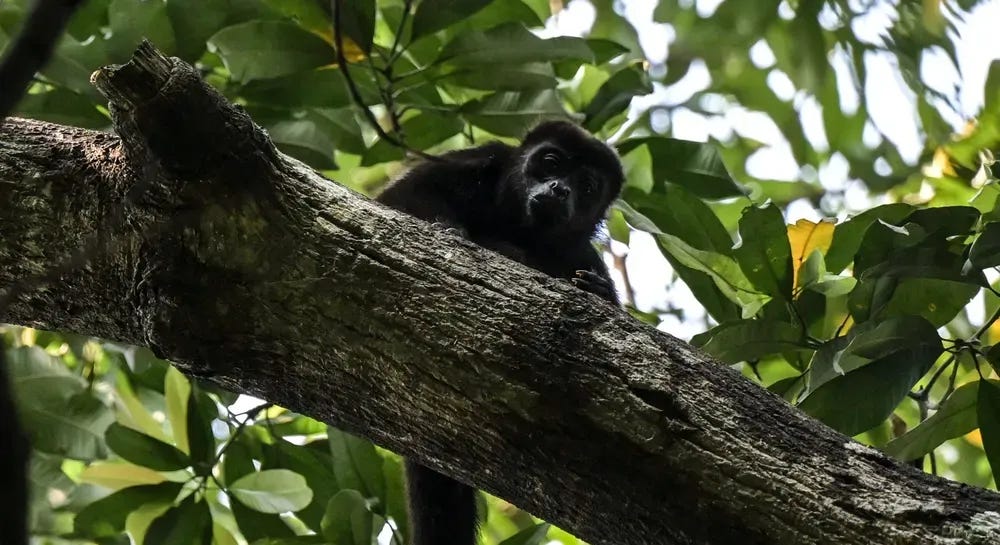
Insects, the often-overlooked foundation of nearly every ecosystem, will be hit hardest. Without them, plants won’t be pollinated, and the delicate balance that sustains life will fall apart. Without insects, other creatures, like birds and small mammals, will starve, triggering a domino effect through food webs.
As insect populations plummet (already down 75% since 1950s and accelerating), entire ecosystems will begin to disintegrate. From bees to butterflies, the loss of pollinators will not only kill food production but will dismantle ecosystems that depend on them for survival.
The vital oxygen that plants produce will plummet, creating a feedback loop where the biosphere continues to unravel. Without plants to filter carbon and produce oxygen, the entire system of life as we know it will break down.
The oceans are also headed for disaster. Coral reefs, which provide shelter and food for a quarter of all marine species, are already dying from warming waters and acidification and will be functionally extinct by 2050. Without phytoplankton, marine food chains will collapse, and fish populations will vanish. As ocean life dwindles, oxygen production from the seas will also decrease, further suffocating life on Earth.
We’re heading for a world where life itself is hanging by a thread, and the tipping points for our biosphere’s collapse are already in motion.
It’s a grim picture, and it doesn’t have to get this bad. Yet, it could, and that’s the terrifying part. I’m sure there are many things I missed and in the end it will all play out very differently. I don’t have a time machine.
So, what now? How do you live knowing what’s ahead?
First, don’t feel bad about the end of modern civilization. It’s been a disaster for the planet and for most of humanity. It was not sustainable to begin with and was always destined to end. Yes, we’ve achieved material wealth and longer lifespans in secure societies, like animals in a zoo, where survival needs are met, but it hasn’t brought true happiness, because it’s not how we’re meant to live.
Instead, you should feel a sense of relief, the human zoo is collapsing, and we can finally be freed from our cages, and begin our journey back to our origins and to reality.
Second, while you could die at any moment for countless reasons, you probably don’t dwell on that thought too much. In a way, this is no different. So, don’t let it bring you down. Sometimes it’s tough, and it’s easy to bury your head in the sand, but understanding what’s coming has its upsides.
Clarity replaces confusion. Most people today are deeply confused about what’s happening in the world, either blaming others or clinging to solutions that will ultimately fail, with wasted efforts leading to disappointment. With this awareness, compassion replaces blame and guilt, giving you a deeper sense of connection and purpose in a world that’s rapidly changing.
This also brings a shift in priorities. You’ll find yourself less consumed by distractions and more focused on what really matters: nature, health, family, and community. Things that don’t matter, like jobs, status, gadgets, and a big bank account, will become largely irrelevant, as they should. You might even decide to quit your job if you have the option. It’s a chance to free your mind and, in a way, liberate yourself from this human zoo we’ve created.
Back to that first question, but let’s change it a bit:
If you knew there was a 99% chance the world as you know it would end before 2050, would you change anything about your life today?
I bet you would. If not, that’s fine too.
Does it make sense to waste our precious time on this planet in jobs we don’t like, jobs that actually contribute to the problem? Does it make sense to save for retirement when that’s increasingly unlikely to happen?
Don’t wait for the government to tell you when it’s time. Live your life and take action now.
If you have the means, consider quitting your job and cashing out next year to join forces with others in preparing for what's ahead. What does that look like? It means building a community that’s self-sufficient in food, water, and basic needs. It will look different for everyone. I might write a more detailed article on this later.
If you’re right, you’ll have spent your life with purpose, more free time, and the freedom to live on your own terms, while potentially improving your chances of survival.
If you’re wrong, and civilization somehow keeps limping along, you’ll still be alive, with a fresh perspective and a life lived differently. You can always start over.
"Hopium" is a slang term that combines "hope" and "opium”, referring to an unrealistic or overly optimistic belief that things will improve despite evidence to the contrary.
https://corporate.exxonmobil.com/-/media/global/files/global-outlook/2024/global-outlook-executive-summary.pdf


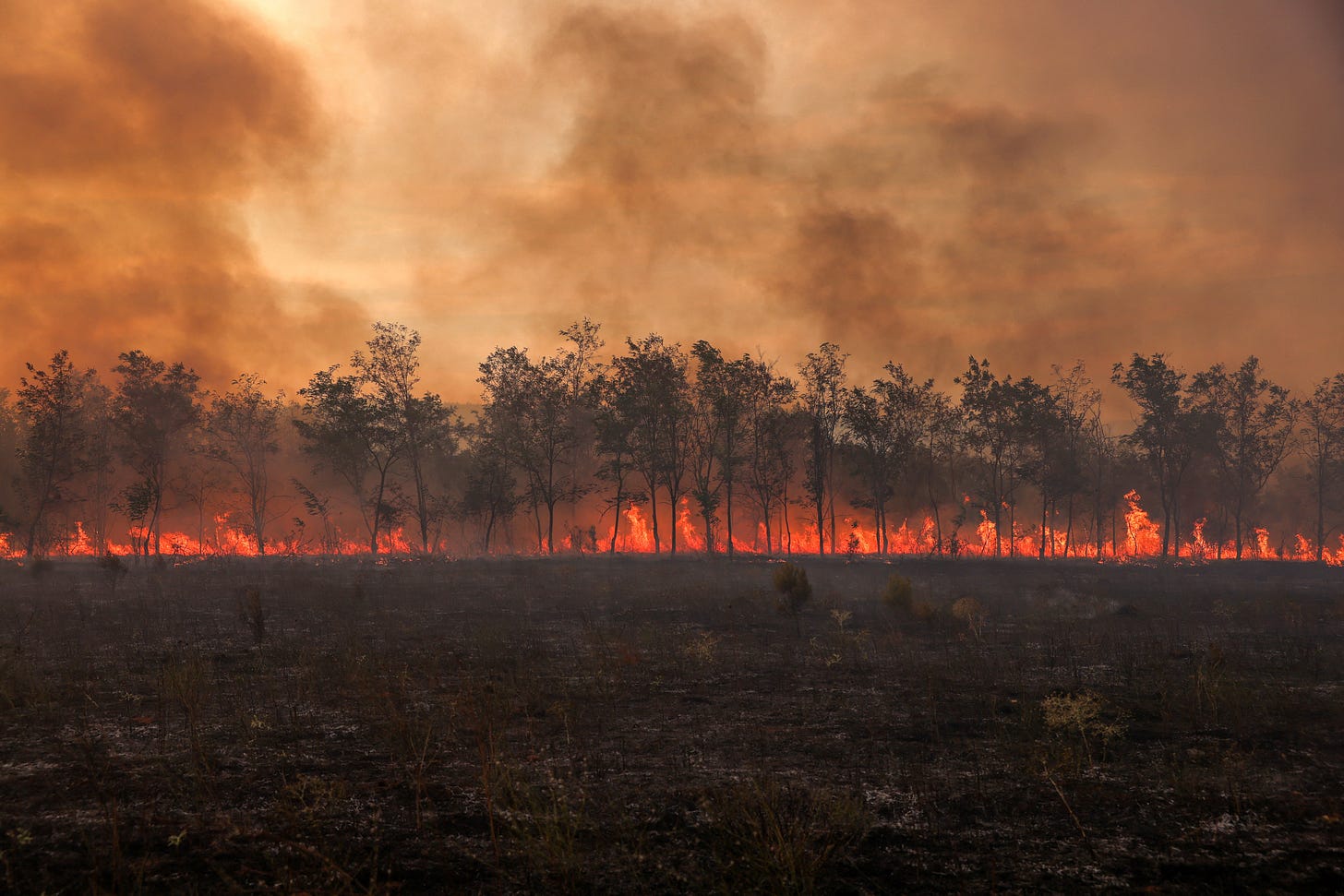

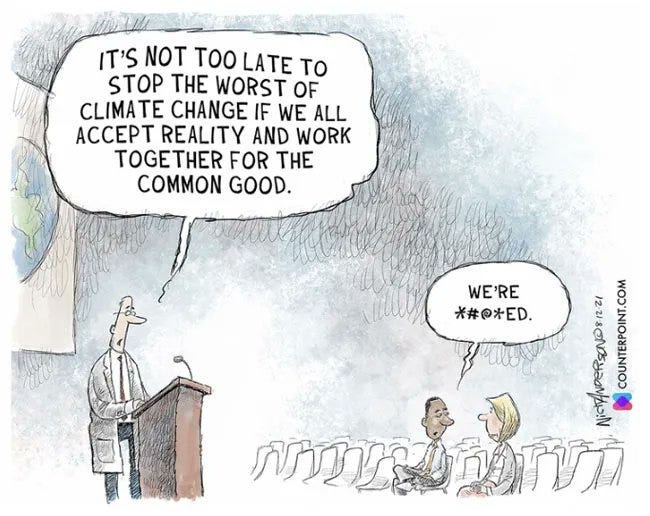


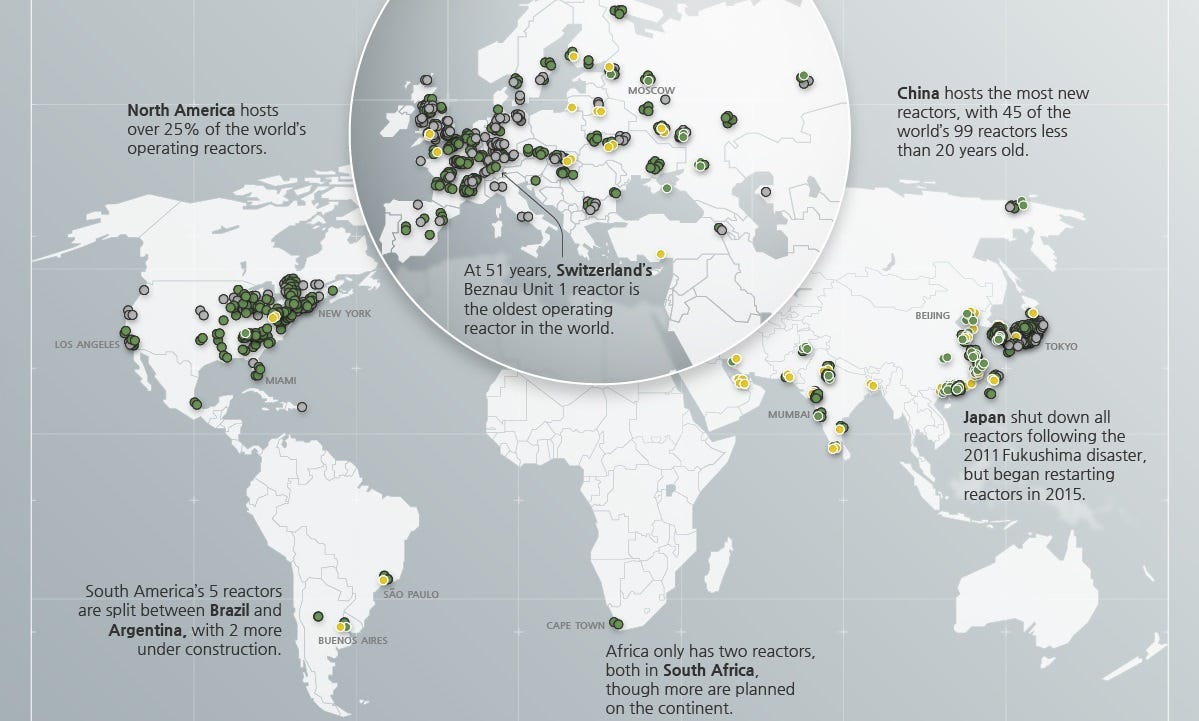


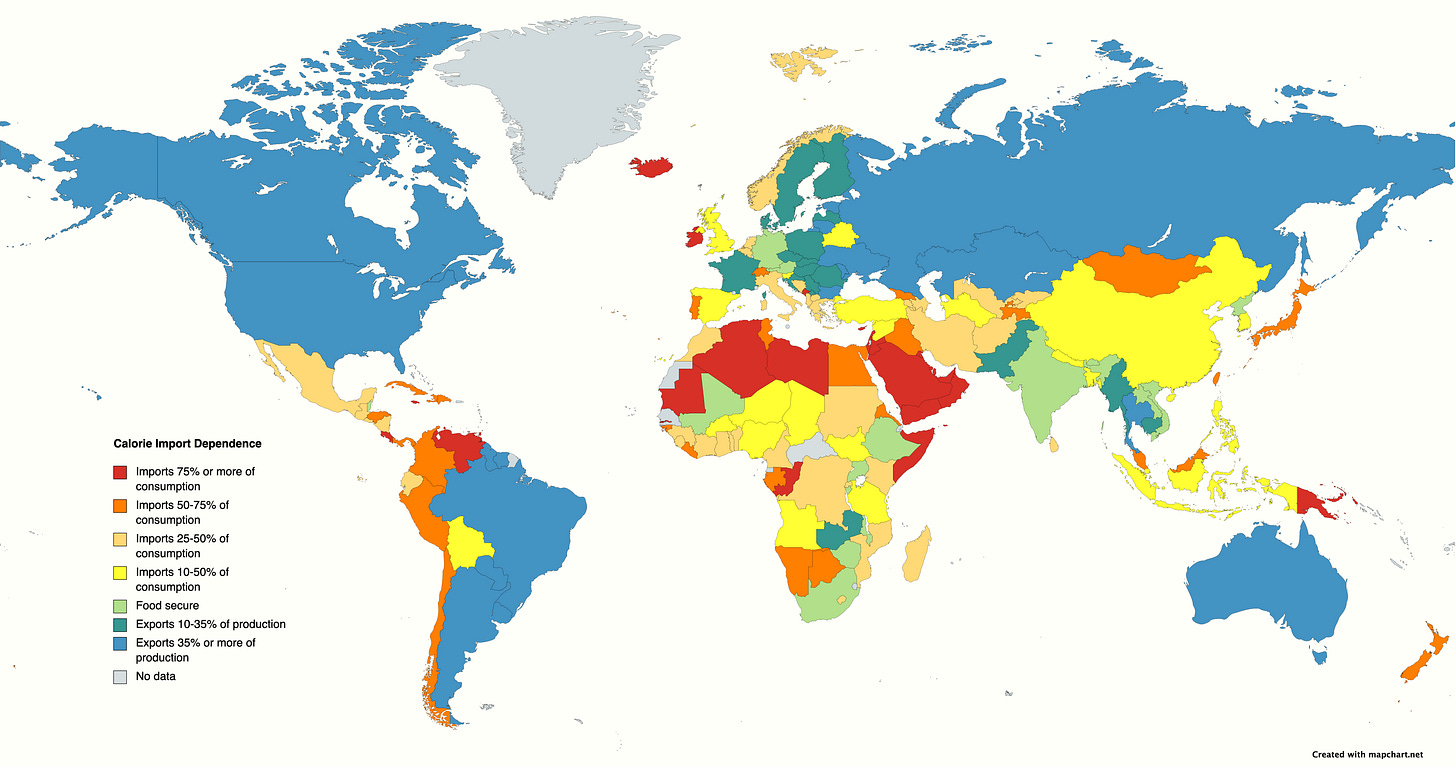

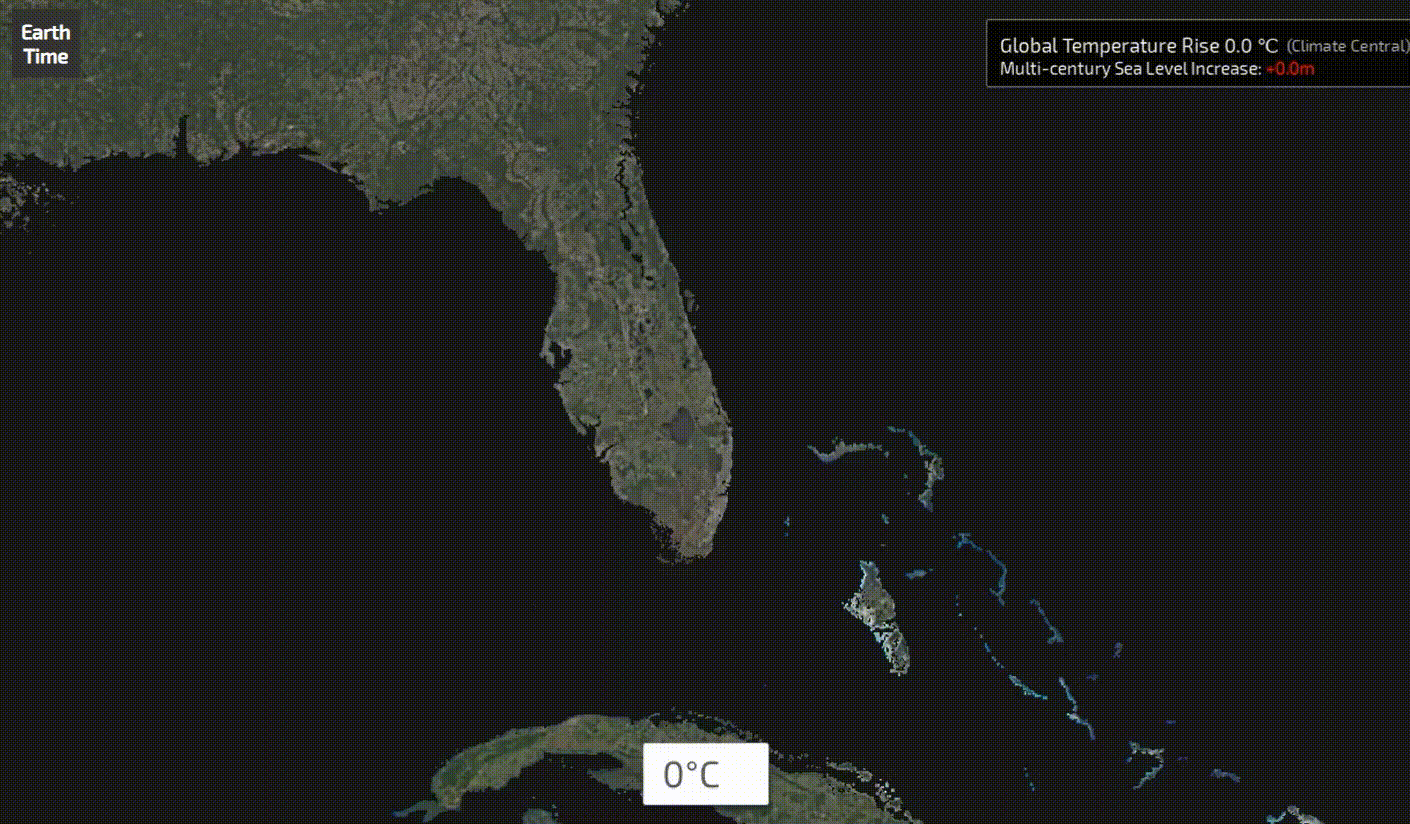
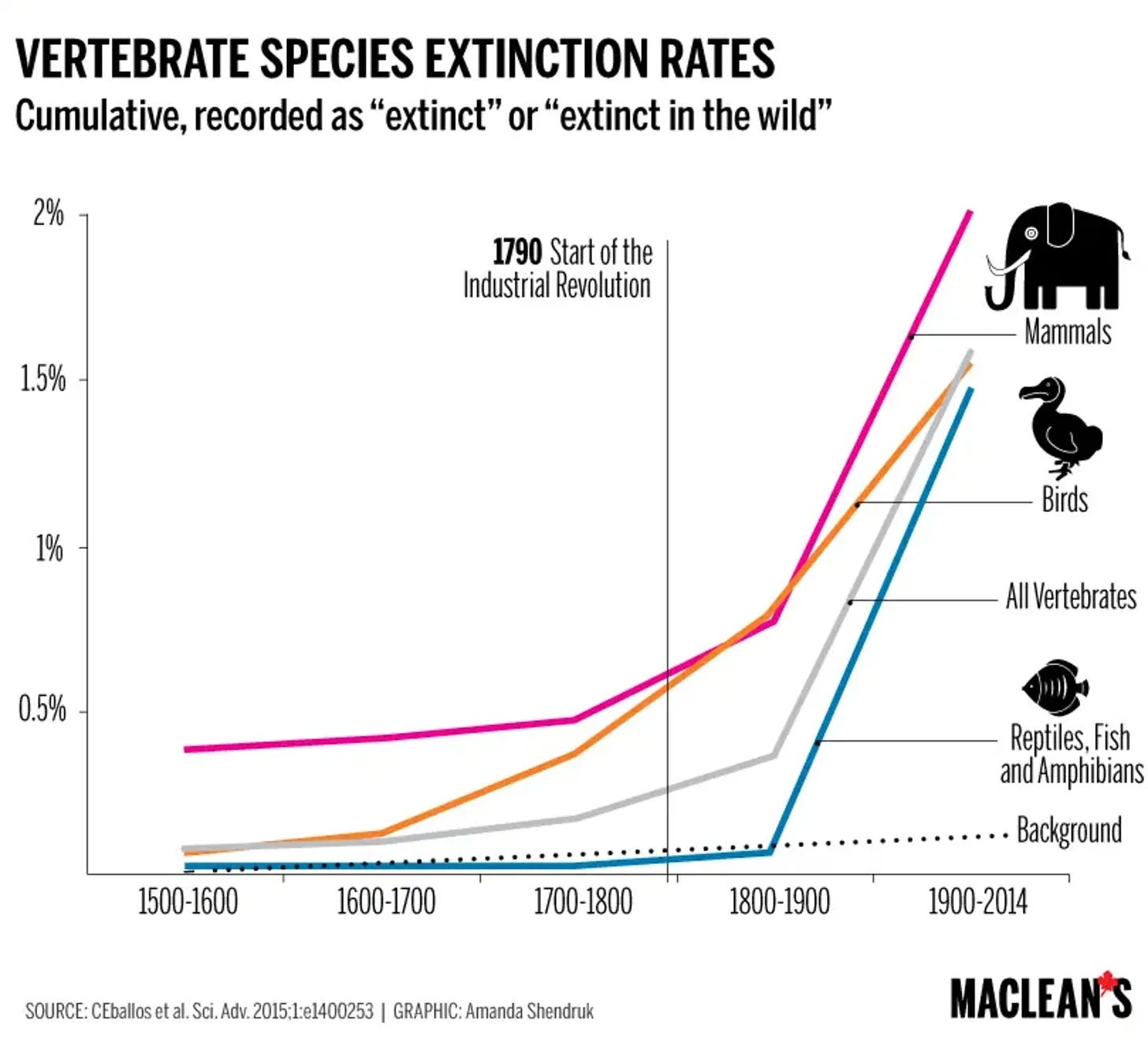
cliff Krolick
9:46 AM (0 minutes ago)
to Itsovershoot
We could begin to slow down the heating particularly in the subarctic and Arctic polar regions but it would take either sane people to dismantle and destroy some huge planet choking infrastructure or some crazy folks doing exactly the same thing with "socially unacceptable means" . The old guard, rather self appointed scientific gatekeepers, try to protect the consensus against any disrupting science despite clear, on the ground evidence to the contrary. Here is another piece of the puzzle that these self appointed old scientific farts are refusing to accept because they're permanently blind-sided by Co2 emissions
When It Comes To Climate Change Co2 Is Not The Whole Story, Here Is Why
Much more is at stake than Co2 removal! There are many other things pulling the chord of heating this planet. I'm concerned most about all the stuff folks remain unconvinced or totally ignorant of.
It appears that whatever we are doing to help mitigate the continuous warming problems certainly has shown no such signs of cooling our planet. If we focus on temperature maps of the northern most portions of our Hemisphere one notices that the largest heat gain and most rapid warming is occurring in the Northern-most latitudes of this hemisphere and all the way across it. Now there are many theories as to why the polar and subpolar regions are showing the greatest and fastest heating and several scientific studies have doubled down that state these regions are warming at least 2-4 times faster than anywhere else on our planet. I'm certain that there may be a few others that can point to the other theories out there. But my specialty lies in the hydrology, and natural cycles of rivers that used to exist throughout the upper latitudes and the delicate temperature balance that maintains Cryosphere(sea-Ice/glaciers)
Something happened up there and to this day it is still impacting our lives down here. In many ways, many of us still cannot or will not accept this Russian and Canadian subarctic hydro dams have forced a radical alteration to the fragile yet critical hydrologic engine regulating our planets water cycle. Since the 1950s both Canada and Russia dammed major rivers in the Arctic region for hydroelectric generation.
This area has the largest concentrations of freshwater in the Northern Hemisphere and is highly, highly climate sensitive to human or natural disruptions to existing historical river-flow conditions. For over 65 years the cumulative effects of mega dams with their inland sea-size impoundments and unnatural strict flow regimens have initiated Arctic Amplification. Impacts include winter humidity and heat pollution, altering weather patterns, warming coastal seas and the Gulf of Maine/ Pacific coasts, and include reducing dynamics of sea ice formation. Additionally, these impacts alter global thermohaline currents with global climate implications.
There's also major reductions in ,and also the timing of nutrients delivered to marine species . Thus major decreases in marine biospheres sequestration of CO2. Our research group is not discounting fossil fuels as a culprit however we have many years of discoveries from gathering onsite weather station data from the early 1900s to present. Much of our temperature and precipitation data show a remarkable correlation and a rapid warming of regions which occurred immediately after rivers, somewhat close to weather stations, were dammed out of existence forming thousands of square miles of inland Sea-size reservoirs and covering over permafrost too
Burying whole Boreal forest, Tundra, and permafrost earth. It should be mentioned that much of these x rivers flow is now permanently sitting stagnant in huge reservoirs for at least 6 months every summer since the 1950's and early 1960's. After stagnating for months, waters begin warming and raising regional humidity levels in an historically dry and cool region. Mostly Wintertime generation of hydroelectric is pulled from a water column well below the top of dams where the water is close to 40F. When finally discharged out the dam, waters hit severely cold temperatures guaranteeing condensation forming into huge clouds(heat), methane rich water vapor spilling into the atmosphere throughout the river valley below. This has been happening undeterred for 65 years. This is “Strict flow Regulation” which basically destroys the entire ecological integrity of the rivers. We will make the case that Arctic mega dams and strict flow regulations are driving up sea level rise and CO2 emissions. We suggest an immediate focus of scientific funding and pressure on Canada to take responsibility and immediately begin decommissioning Arctic dams letting the rivers flow again. Energy costs are cheap in Canada. How cheap? it may be costing all of us a live-able planet.
The only solution to preserve the biosphere, including a remnant human population in scattered remote refugia, is continued voluntary or stress disease driven population reduction and consequent natural resource consumption reduction. (Mother)Nature Bats Last.